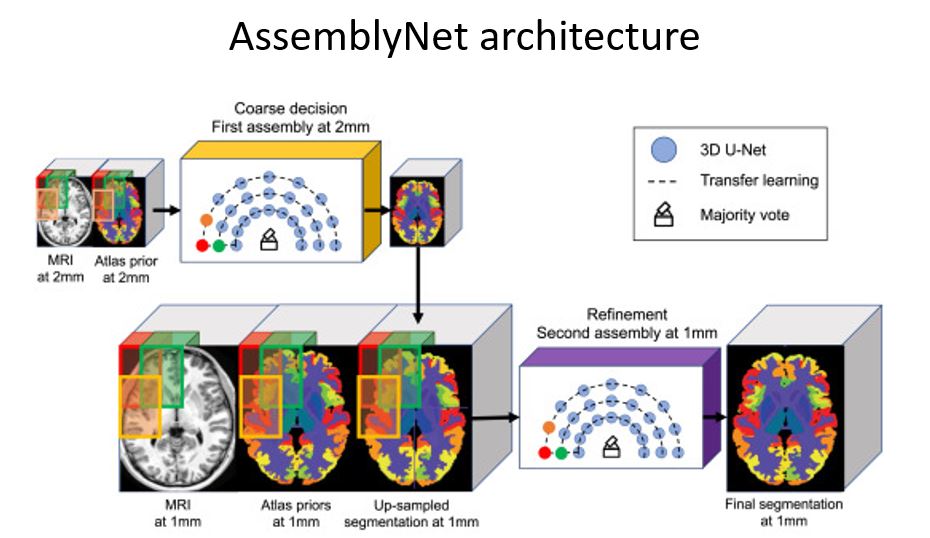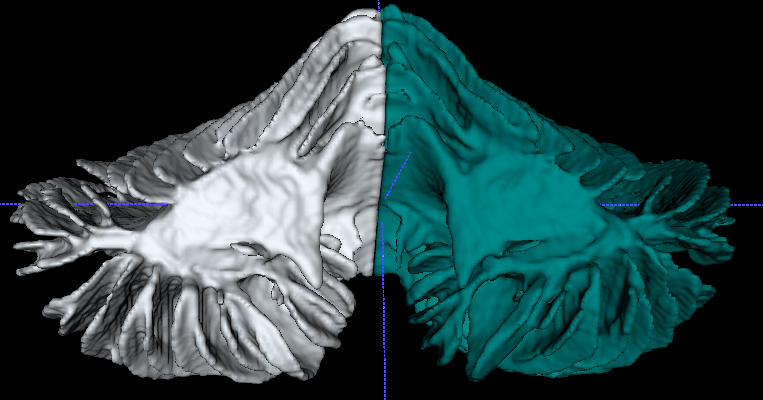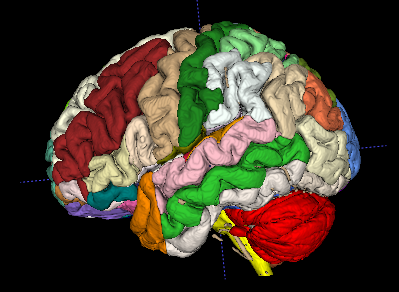Welcome to the MIA Lab
We are the Medical Image Analysis Lab (MIA), a dynamic research group at the ITACA (Institute of Information and Communication Technologies) of the Polytechnical University of Valencia (UPV).
Our research group specializes in biomedical image processing, with a particular focus on MRI data. We are dedicated to advancing the field through the development of tools for image pre-processing, including denoising, super-resolution, harmonization, synthesis, and addressing higher-level challenges such as image segmentation and classification. In doing so, we use the experience and knowledge gained in the design of classical algorithms and state-of-the-art deep learning methods.
Our work also aims to improve the understanding of pathologies such as Alzheimer’s disease, multiple sclerosis, and Parkinson’s disease, ultimately leading to enhanced diagnosis and potential advancements in treatment (see Research).
We foster a collaborative environment where researchers can engage in stimulating discussions and exchange ideas to push the boundaries of biomedical image processing and contribute to innovations in healthcare.
Open access to volBrain platform for MRI brain analysis
In collaboration with University of Bordeaux France and CNRS, we have developed an online open MRI brain volumetry system. Our mission is to help researchers all over the world to obtain automatically volumetric brain information from their MRI data without the need of learning complex software packages or having expensive computational infrastructures in their local sites.

volBrain platform works in a fully automatic manner and is able to provide brain analysis without any human interaction in few minutes. We have currently deployed pipelines dealing with different brain areas and diseases from both mono-modal and multi-modal MRI data.
This online platform is free for non-commercial and non-medical purposes (research only)
News
Oct 2025
Our new pipeline petBrain to automatically estimate amyloid (A), tau (T2), and neurodegeneration (N) biomarkers is available on the volbrain platform.
Sep 2025
Our new pipelines cognitiveTree, for differential diagnosis across seven cognitive conditions (CN, AD, bvFTD, SD, PNFA, PSP, and DLB), and motorTree, for differential diagnosis across 4 motor conditions (PD, PSP, MSA, and DLB), are now available on the volbrain platform.
Aug 2025
We are pleased to announce that our paper entitled “Robust Deep MRI contrast synthesis using a prior-based and task-oriented 3D network” has been published in Imaging Neuroscience.
Jul 2024
We are pleased to announce that the DeepCERES and DeepThalamus pipelines are now available for use on the Volbrain platform.
Jul 2024
We are glad to announce that our project entitled “CLINIC BRAIN - Development of an Ultra-High Resolution Multimodal Brain MRI Image Analysis Software for Application to Clinical Settings” has been granted. This project will represent a major advance in our mission to develop ultra high resolution brain volumetry methods using current clinical quality MRI data.
May 2024
Two works of our members have been accepted in MIDL2024. Unsupervised Deep Learning Method for MRI Bias Correction A new deep learning based method for automatic MR image inhomogeneity correction has been proposed. The method uses unsupervised learning to estimate the bias corrected images minimizing a cost function based on the entropy of the corrupted image, the derivative of the estimated bias field and corrected image statistics. It has been compared with the state-of-the-art method N4 providing improved results in time and tissue coefficient of variation metrics. REMIX Resolution Enhancement through Mixture of Experts We propose a new deep learning method to enhance resolution in MNI space. The method exploits real affine transformations to generate realistic MRI data degradation models. We generate low-resolution images from high-resolution HCP data and real-acquisition low-resolution images at MNI152 space. Besides, we demonstrate the effectiveness of a Mixture of Experts approach to handle the varying input resolutions commonly seen in clinical environments. The approach has proven to be highly effective in improving the resolution of MRI data.
January 2024
The paper DeepCERES A Deep learning method for cerebellar lobule segmentation using ultra-high resolution multimodal MRI is now available on arXiv for consultation.
January 2024
The paper DeepThalamus A novel deep learning method for automatic segmentation of brain thalamic nuclei from multimodal ultra-high resolution MRI is now available on arXiv for consultation.
November 2023
Members of the group attended CASEIB 2023, the Annual Congress of the Spanish Society of Biomedical Engineering (SEIB). During this event, Sergio Morell Ortega and Marina Ruiz Perez presented their latest results on automatic segmentation of the cerebellum and thalamus, within the HoliBrain project. It was an enriching meeting where we shared knowledge, learned from other researchers and immersed ourselves in the latest advances in our field. A great opportunity to collaborate and continue promoting innovation in biomedical engineering in Spain.



